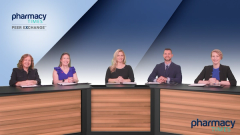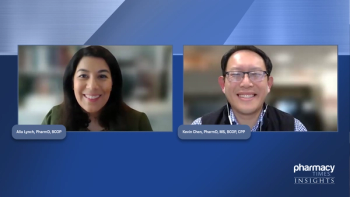
Pertinent Information for Shared Decision-Making
Panelists discuss that effective shared clinical decision-making for RSV vaccination begins with clear, simple education about RSV’s risks and vaccine benefits, encourages patient questions, and involves transparent communication about how vaccines work and their safety; they emphasize that pharmacists already practice this approach routinely and should confidently use it to support informed patient choices and improve vaccine uptake.
Episodes in this series

When engaging in shared clinical decision-making about RSV vaccines, it’s important to start with clear, straightforward information about the disease itself. Patients benefit from understanding what RSV is, the symptoms they might experience, and especially the potential severity and impact it could have on their health and daily life. Highlighting risks like hospitalization, long-term organ damage, or financial consequences such as lost wages can help patients appreciate why vaccination is important—not to scare them, but to inform them. Following this overview, encouraging patients to ask questions ensures they feel involved and supported in making the best decision for their health.
Explaining how the vaccines work is another key part of patient education. While detailed scientific explanations aren’t necessary, using simple language to describe the vaccine mechanisms—such as mRNA technology—and addressing common concerns can build trust. The mRNA platform, for example, is often recognized from the COVID-19 vaccines, which can make patients more comfortable with its use for RSV. Discussing the typical adverse effects, which are usually mild and similar across different vaccine types, helps manage expectations and reassures patients about safety. This kind of transparent communication aligns with the vaccine information statements that provide standardized safety details.
Finally, pharmacists should recognize that shared clinical decision-making is already a routine part of their practice. There is sometimes confusion or hesitation because the term may sound complex or imply needing additional approval from other health care providers. However, every discussion where pharmacists weigh risks and benefits with a patient is shared decision-making. It’s important to embrace this role confidently, understanding that assessing patient risk, reviewing medications, and providing tailored recommendations are all within the pharmacist’s scope and supported by official guidelines. This mindset encourages pharmacists to actively promote RSV vaccination and address patient concerns effectively.
Newsletter
Stay informed on drug updates, treatment guidelines, and pharmacy practice trends—subscribe to Pharmacy Times for weekly clinical insights.




























